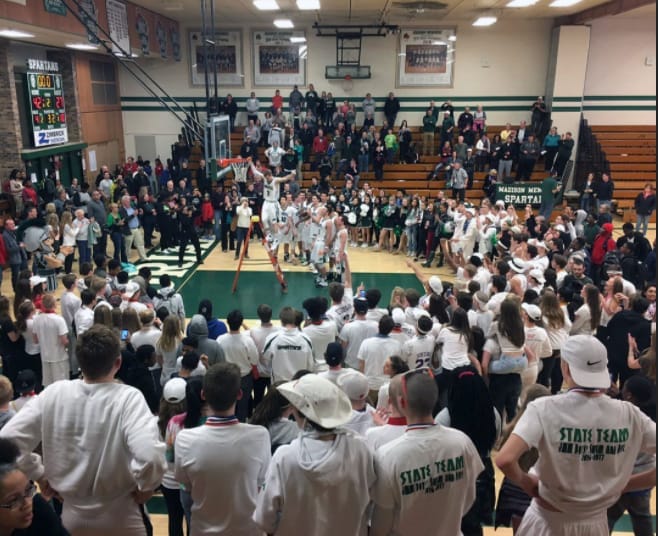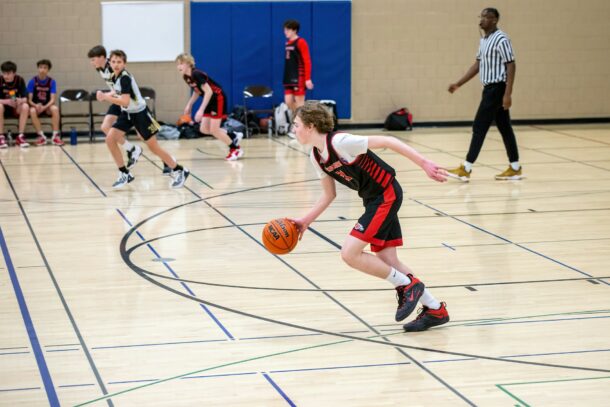The role of summer basketball has shifted significantly over the past two decades. For new and inexperienced youth basketball coaches, it can be difficult to navigate this ever-changing landscape. Between the explosion of AAU programs, the rise of highlight culture, and increased parental expectations, summer hoops now plays a complex and often misunderstood role in a player’s development.
As a veteran coach who has worked in both high school and AAU programs, I want to offer a grounded perspective on how summer basketball can truly help, or hurt, your players.
What Is the True Role of Summer Basketball?
At its best, the role of summer basketball is to supplement a player’s development, not replace it. Summer should be a time for refining skills, expanding basketball IQ, and getting meaningful reps in both structured and competitive environments. But increasingly, the focus has shifted from development to exposure.
Many programs today prioritize tournaments, social media highlights, and stacking up games. While those elements have value in small doses, they often distract from the foundational work that actually helps young athletes get better. Summer basketball is most effective when it balances reps with rest, competition with correction, and training with teaching.
1. Avoid the Trap of Overplaying
One of the biggest mistakes I see youth coaches make is overloading players with games in the summer. When kids are playing three to five games in a weekend and only practicing once during the week, the ratio is all wrong. Development comes from practice. Games are where you showcase what you’ve built.
If you’re running or coaching a summer team, schedule no more than one or two tournaments a month. Use the rest of the time for targeted practices that reinforce individual skill work and team fundamentals. The role of summer basketball should be to build, not burn out.
2. Make Skill Development the Priority
The European model offers a great example: three practices to every one game. Their emphasis is on long-term development, not short-term winning. In the United States, we often flip that model and wonder why players stagnate. Summer is the perfect time to focus on improving shooting mechanics, ball handling, decision-making, and conditioning, not just winning on the weekend.
Encourage your players to set development goals for the summer. Maybe it’s making 10,000 shots, improving their weak hand, or becoming more vocal on the court. Build workouts that support those goals and track progress. The role of summer basketball is to help your athletes return to their school teams as better, more complete players.
Join the TeachHoops Community

TeachHoops.com offers a unique platform for coaches to share experiences and gain new insights. Learn from others who have navigated similar challenges. It’s an invaluable resource for those looking to:
- Broaden perspectives
- Refine strategies
- Enhance their leadership and motivational skills
Step into Enhanced Coaching
Win the Season: Basketball Masterclass!

3. Choose the Right Program for Your Players
If your athletes are exploring AAU or travel ball, help them vet programs. Not all summer teams are created equal. Some are development-focused, offering honest feedback, quality coaching, and proper practice structure. Others are transactional, more interested in collecting fees than building players.
A reputable summer program should:
- Provide qualified and committed coaches
- Balance tournaments with practice time
- Prioritize player development over win-loss records
- Communicate openly with high school coaches
Let your players and their families know that more games don’t always equal more growth. The role of summer basketball should be developmental, not just promotional.
4. Help Players Balance Basketball with Life
One of the healthiest things a young athlete can do during the summer is step away from basketball for a stretch. Encourage them to play other sports, go on family vacations, or just rest. Overuse injuries and mental burnout are real issues in today’s youth sports scene.
As a coach, you can lead by example. Structure your summer plans with recovery time in mind. Whether your players are running track, swimming, or simply shooting around in the driveway, variety helps their overall athletic development. When basketball is mixed with balance, players come back fresher and more focused.
Final Thoughts: Keep the Big Picture in Mind
The role of summer basketball is not to churn out college prospects. It’s to help young people grow, as athletes and as individuals. Most of the kids you coach will never play at the next level, but they can still have an incredible experience learning life lessons through this game.
So when you’re planning your summer, ask yourself:
- Are my players developing better habits?
- Are they becoming smarter basketball thinkers?
- Are we building a culture that will carry over into the fall?
If the answer is yes, then your summer has served its purpose.
Latest Posts
- Basketball Practice Planning: A Simple System for Youth and High School Coaches
- Basketball Coaching Culture: What Great Coaches Teach Beyond the Playbook
- A Quick Passing Warm-Up Drill to Emphasize Communication and Movement
- Does the 5-Man Weave Drill Still Have a Place in Youth Basketball?
- When Culture Meets Competence: What Indiana Football’s Turnaround Teaches Every Coach





